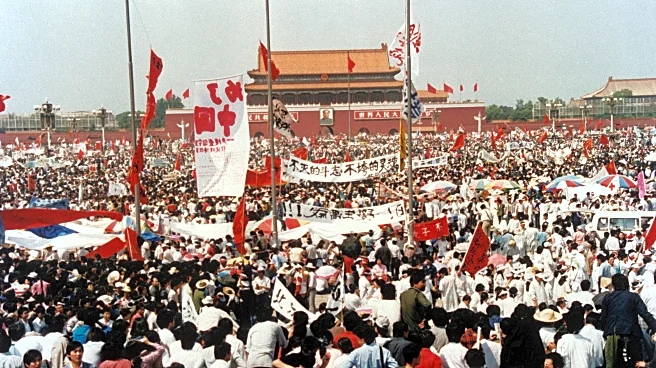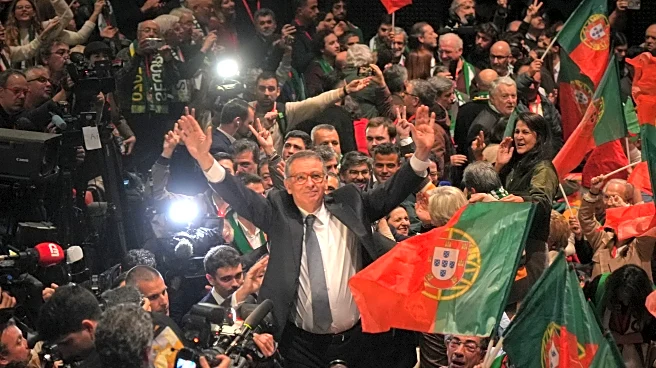Rapid Read • 7 min read
Iranian actress Golshifteh Farahani shared her experiences of leaving Iran, her career in music and film, and her views on cultural issues during a conversation at the Locarno Film Festival. Farahani recounted her forced exile after starring in Ridley Scott's 'Body of Lies' alongside Leonardo DiCaprio, which led to her passport being seized by Iranian authorities. She discussed the symbolic significance of the hijab in Iran and her personal struggles with identity and freedom. Farahani also expressed her love for France, where she currently resides, and her thoughts on the lack of Iranian stories in global media.
AD
Farahani's story highlights the challenges faced by artists and individuals under restrictive regimes, emphasizing issues of freedom, identity, and cultural expression. Her experiences reflect broader themes of women's rights and the impact of political tensions on personal and professional lives. Farahani's insights into the Iranian film industry and her call for more representation of Iranian stories in global media underscore the importance of cultural diversity and the power of storytelling in bridging cultural divides.
Farahani's remarks may inspire discussions on the representation of Iranian culture and stories in international media, potentially influencing filmmakers and streaming platforms to explore Iranian narratives. Her experiences could also contribute to ongoing debates about women's rights and cultural freedom in Iran, encouraging advocacy and support for artists facing similar challenges. As Farahani continues her career, her perspectives may shape future projects and collaborations that highlight cultural and social issues.
Farahani's journey raises ethical questions about the role of art in challenging political and cultural norms. Her story illustrates the resilience of artists in preserving cultural heritage and advocating for change despite adversity. Long-term, her experiences may influence global perceptions of Iran and contribute to a broader understanding of the complexities of cultural identity and freedom.
AD
More Stories You Might Enjoy











